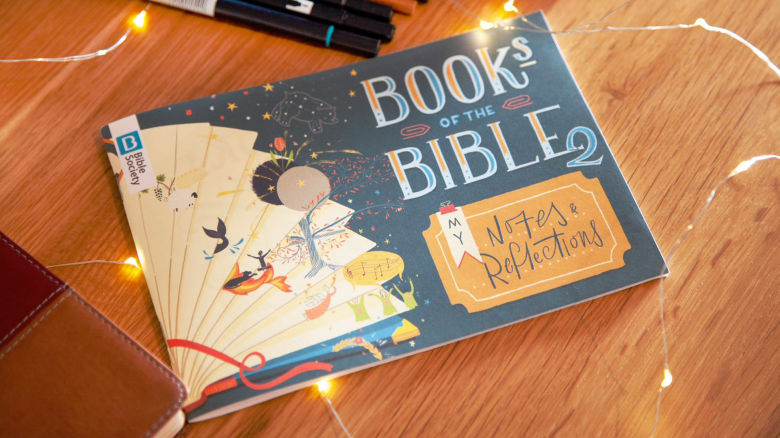The book of Judges picks up some, though not all, of the stories of the individual tribes who settled in Canaan. It is set between the death of Joshua (at the end of the book of Joshua) and the birth of Samuel (the beginning of the book of 1 Samuel) and focuses on some of Israel's leaders, who were then called judges. At this point the tribes were far from being a nation. Instead they were a loose (sometimes very loose) confederation. Judges tells the story of the ups and downs of their early life in the promised land.
But the people of Israel said to the Lord, 'We have sinned. Do whatever you like, but please, save us today.' So they got rid of their foreign gods and worshipped the Lord, and he become troubled over Israel's distress. (Judges 10.15–16).
Quite a lot. The two most important tricky elements are:
Jewish tradition attributes the authorship of Judges to Samuel but there is no evidence for this. No author is named within the book itself. In style and theology it is very similar to Judges, 1 and 2 Samuel and 1 and 2 Kings, and so it is often thought to form a collection of writings with them named by scholars the ‘Deuteronomistic histories’.
Next to nothing.
It is suggested that the authors of these histories were influenced by Deuteronomy and told Israel’s history from that perspective. The key feature here is that Deuteronomy stresses God’s people will only stay in the land if they remain faithful. Joshua, Judges, 1 and 2 Samuel and 1 and 2 Kings tell the story of how God’s people failed to be faithful and so, eventually, went into exile from the land. That story is told right at the end of 2 Kings.
No one really knows when these books were written. It is thought that they reached their final form in the sixth century BC, shortly after the Judeans went into exile, and were finalised then in order to explain why the exile had happened at all. It's clear, though, that these final documents were drawn together from already existing sources, many of which would have been written during or shortly after the events described.
Judges contains what's believed to be some of the oldest material in the whole of the Bible. For example the Song of Deborah in Judges 5 could be as old as the twelfth century BC.
If it's right that these histories are written to explain why the exile happened, it's clear that the people would have been feeling hurt, despairing and lost. For a sense of what people were feeling then, have a look at the book of Lamentations, which provides an accurate insight into their emotions.
The people who lived at the time that Judges was written may not have felt much better. They had arrived in the longed-for promised land, but the going was unrelentingly hard.
Joshua, Ruth
This is a history book, but it falls into the category of what you might call theological history – history with a purpose. It is not telling the story just so that you can know what happened, but so that you can understand why it happened. Many of the historical books of the Bible are like this.
1.1–3.6 Laying out the problems
3.7–16.31 Stories about various judges (including Deborah, Gideon and Samson)
17.1–18.31 The theft of Micah’s idol and the relocation of the tribe of Dan
19.1–21.25 The outbreak of civil war
There will be lots of names you will not know; don’t worry if you can’t place them all. The key ones are given below.
Midian, Aram, Ashkelon, Beer-sheba, Bethel, Canaan, Dan, Edom, Ekron, Ephraim, Gaza, Gezer, Gilgal, Hebron, Israel, Jabesh-gilead, Jerusalem, Jezreel, Judah, Lebanon, Midian, Mizpah, Moab, Mount Gerizim, Mount Seir, Mount Tabor, Negeb, Ramah, Shechem, Shiloh, Sidon
Jebusites, Amorites, Moabites, Midianites, Amalekites, Ammonites, Philistines, Asher, Balak, Benjamin, Benjaminite, Canaanites, Hivites, Issachar, Jebusites, Joshua, Levites, Manasseh, Midianites, Moabites, Moses, Nazirites, Philistines, Sidonians
Altar, Ark of the Covenant, Baal, burnt offering, cubit, Dagon, idols, priest, threshing floor, wadi
The angel of the Lord appears 18 times in Judges. Look out for the occasions when the angel appears and notice what role the angel plays in the story.
The spirit of the Lord falls on four of the judges – Othniel, Gideon, Jephthah and Samson. Look out for these occasions and, most importantly, for what happens when the Spirit has fallen on the relevant people.
The judges weren't all models of good leadership. As you read, reflect on what there is to be learned from what you see.
The story that comes to the surface time and time again in the book is the disastrous mess God’s people make of living in the land and God’s overwhelming grace in helping them. Reflect on this theme as you encounter it and reflect on our world today – has much changed?

Here are 8 handy tips to get your book club up and running.

Here are some ideas to get you started.

Unsure of the meaning of a word or phrase in the Bible? Check our glossary of terms.
Books of the Bible journal: 2nd Edition
Journey through the Bible, one book at a time, with the 2nd edition of our Books of the Bible journal.
